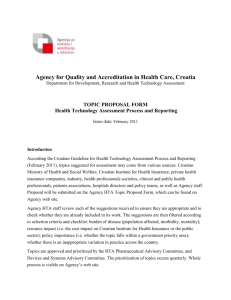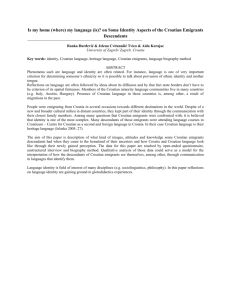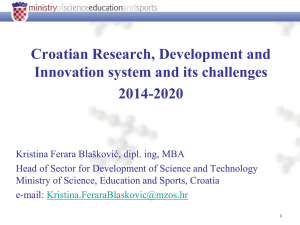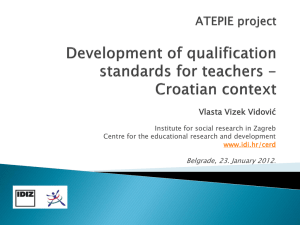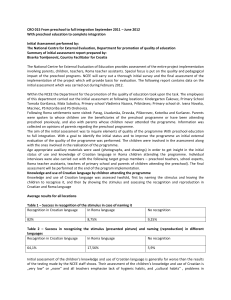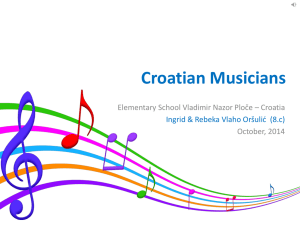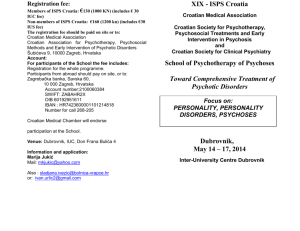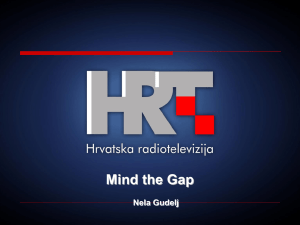three
advertisement
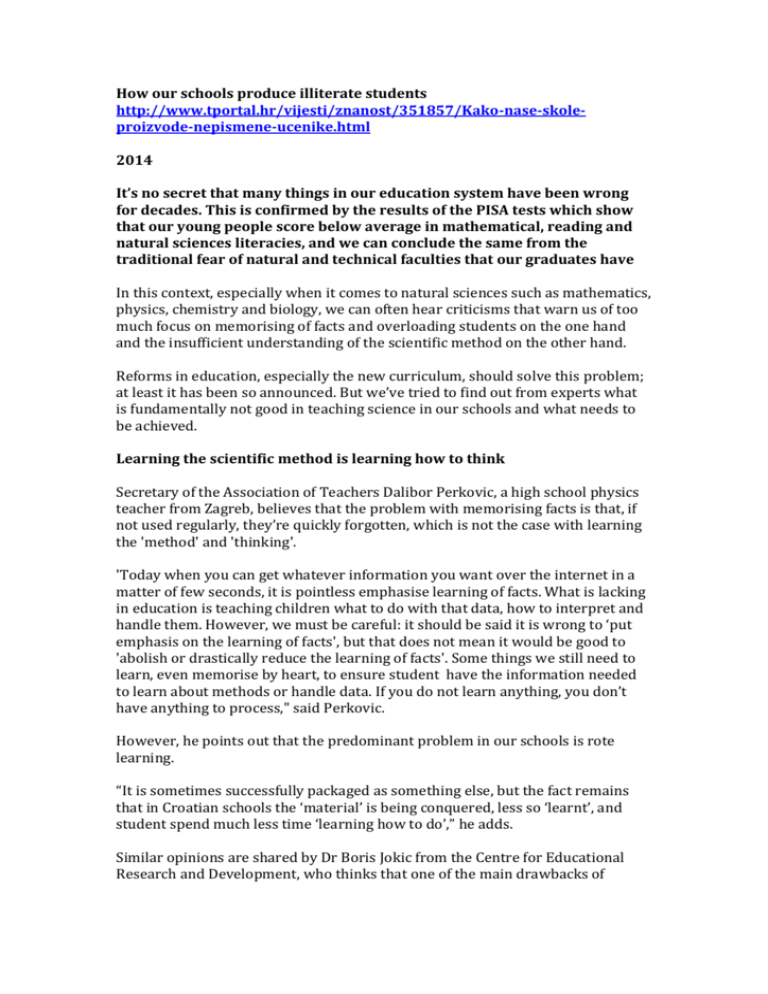
How our schools produce illiterate students http://www.tportal.hr/vijesti/znanost/351857/Kako-nase-skoleproizvode-nepismene-ucenike.html 2014 It’s no secret that many things in our education system have been wrong for decades. This is confirmed by the results of the PISA tests which show that our young people score below average in mathematical, reading and natural sciences literacies, and we can conclude the same from the traditional fear of natural and technical faculties that our graduates have In this context, especially when it comes to natural sciences such as mathematics, physics, chemistry and biology, we can often hear criticisms that warn us of too much focus on memorising of facts and overloading students on the one hand and the insufficient understanding of the scientific method on the other hand. Reforms in education, especially the new curriculum, should solve this problem; at least it has been so announced. But we’ve tried to find out from experts what is fundamentally not good in teaching science in our schools and what needs to be achieved. Learning the scientific method is learning how to think Secretary of the Association of Teachers Dalibor Perkovic, a high school physics teacher from Zagreb, believes that the problem with memorising facts is that, if not used regularly, they’re quickly forgotten, which is not the case with learning the 'method' and 'thinking'. 'Today when you can get whatever information you want over the internet in a matter of few seconds, it is pointless emphasise learning of facts. What is lacking in education is teaching children what to do with that data, how to interpret and handle them. However, we must be careful: it should be said it is wrong to ‘put emphasis on the learning of facts', but that does not mean it would be good to 'abolish or drastically reduce the learning of facts'. Some things we still need to learn, even memorise by heart, to ensure student have the information needed to learn about methods or handle data. If you do not learn anything, you don’t have anything to process," said Perkovic. However, he points out that the predominant problem in our schools is rote learning. “It is sometimes successfully packaged as something else, but the fact remains that in Croatian schools the ‘material’ is being conquered, less so ‘learnt’, and student spend much less time ‘learning how to do’,” he adds. Similar opinions are shared by Dr Boris Jokic from the Centre for Educational Research and Development, who thinks that one of the main drawbacks of Croatian education is precisely the lack of development and adoption of scientific method. “It is important not only for the education of future scientists, but even more for the development of scientific thinking of the entire population. Almost all developed countries insist on experiential learning, learning by discovery and experimentation as important elements of the development of young people, as well as the development of a more positive attitude towards science," says Jokic. According to Perkovic, lack of learning and understanding of the scientific method leads to an inability to adapt to modern and dynamic civilization in which information - much of it inaccurate - comes at us from all sides, and to the lack of flexibility in life and work, which can only be catastrophic in an everchanging society. Jokic is convinced that the insistence on the aspect of ‘understanding’ would have a positive impact on students' attitudes, because such methods of learning are closer to everyday experience of children. 'They would be positive in the long run, too, because, although people do not think and make decisions solely using a scientific approach, it is important to introduce them very early to the basics of setting goals and hypotheses, of variation and of drawing conclusions. Experiences from elsewhere show that children very easily transfer such scientific concepts to other life situations and make more rational decisions," says Jokic. The obstacle is the complete lack of national concern for education Perkovic believes that the main obstacle to such a system of education is a complete neglect of education by the entire nation. Negligence by the government, he points out, is only a consequence of this wider neglect, which, of course, does not pardon the Government and the Ministry from their significant share of the responsibility. “The school system currently does not function in any of its aspects. The fact that we see that the wheels spin, that something is being done does not mean functionality. Simply speaking, energy is being wasted, and the work is not being done. Obstacles to organizing teaching the way it should be done are a shortage of everything - of space and time, and of organizational and material premises, and in many cases of qualified teachers," says Perkovic. Jokic strongly supports the ideas of introducing more practical work and experiments into scientific subjects, such as the famous 'science projects' in Western countries. “It really is necessary to introduce as much practical work as possible into Croatian education. In education during socialism, whatever one may think of it, at least once during schooling you’ve sewn a button, hammered a nail or cooked an egg. Analyzing today's education, it is clear that there are no practical elements to it," says our expert. Do we need a consolidation of science subjects? Jokic and Perkovic both agree we need more interdisciplinarity in scientific subjects. This could be achieved by integrating the subjects into a single one, 'science', but not necessarily so, they say. “We do not need to reduce the number of subjects, which is a concept originated from outdated concepts of education in which teaching is divided into drawers that are unrelated to each-other. Any reorganization is thereby reduced to a relocation or elimination of drawers. What we need is reform the entire tray system into something that will look more like an open, connected shelf," says Perkovic. Jokic is convinced that it is possible to have a good scientific education either through a single or through multiple subjects. However, he points out that there is a low connectedness between subjects in Croatian education and that it is very questionable whether students perceive science as a single whole. “My research suggests that their experience of teaching science can be described as generally positive, but without any sincere interest or commitment. I also think that science should be taught from the very first grade," says Jokic. Our students do not learn too much, on the contrary! Both experts also agree that there is an excessive hysteria over the alleged overloading of our students with material to memorise; they say students abroad have to learn much more. “What makes a good school abroad different from a Croatian one is that there is a lot more independent student work; in the social sciences they write essays and analysis, and is natural science they perform scientific experiments. But in our country, even in the best and most advanced schools, ex cathedra lecturing and testing of what is learned are the backbone of the system,” warns Perkovic. Jokic says that the Croatian students feel burdened just because they are usually confronted with only a single form of cognitive activity: memorising and parroting back the facts and factual knowledge. “They can do a lot more than the public thinks, but they should be put into a situation where they can express themselves and apply their abilities. I hope that the changes announced by the new Strategy of Education will introduce science from the first grade and go towards developing different abilities of students,” concluded Jokic.
